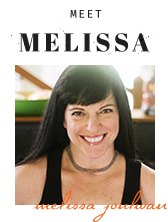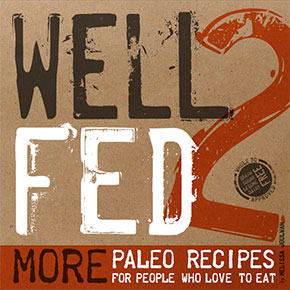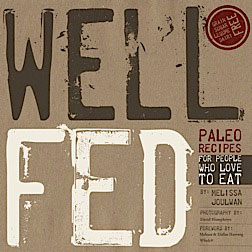At the end of every month, I take a look back at my reading journal and share the books and my thoughts on them here....
Read MoreReading Recap: September 2018
At the end of every month, I take a look back at my reading journal and share the books and my thoughts on them here. The comments below are excerpts from my full reviews on Goodreads; you can always keep up with my reading in real-time over there.
I’m a little behind on my reading recaps!
Not even kidding, my friends: How is it November already?! I feel like I spent all of September anticipating our big vacation with my parents—and reading books to get me in the mood—then, while we were enjoying our cruise on the Danube, October evaporated right before my eyes. I have that weird feeling of having had intense experiences and having somehow missed a whole bunch of stuff.
Our river cruise passed through Romania, Bulgaria, Serbia, Croatia, and Hungary, and I devoured books set in those locations before, during, and after our trip. Here’s the first batch; the rest are coming next week in my October recap. Happy travels! reading!

The Lake House by Kate Morton | 3 stars
This book weaves two stories: reminiscences of a past tragedy and its aftermath, and a modern story that reflects some of the themes of the decades-old story. I didn’t care all that much about the modern story, but the flashback stuff was well told.
I really enjoyed that this was almost a ghost story: The characters are all haunted in different ways by a tragic event at a Midsummer party in 1933. It’s gut-wrenching, and the fallout lasts the entire lifetimes of the characters, as it would. I thought the resolution of the mystery of the past was solid, and I enjoyed the few red herrings that came up along the way to keep me wondering what really happened. I love the outrageously serendipitous stuff that happens to tie up loose ends in 19th century novels—”Hello! Jane Eyre, this is your cousin, and BTW, you’re rich now.”—and I thought the tidying up of all the disparate threads in this sprawling story was very satisfactory… but the in-trouble cop of the modern storyline didn’t move me.
Favorite highlight: “Mother objected to Alice’s habit of caressing her pocketed book because it made her look “shifty, like you’re up to no good,” a description Alice had decided she didn’t mind one bit.”
Cafe Europa: An Edna Ferber Mystery by Ed Ifkovic | 3 stars
The good: The story is set in pre-WWI Budapest, and it’s rich in details that ground it in that particular time and place. The beginning-to-fade glory of the Café Europa in the real-life Arpad Hotel (frequented by American travelers), the still-famous New York Café, and Café Gerbeaud, the Roma music, the cakes and coffee with whipped cream, the dynamic politics… they’re all brought to life with vivid descriptions that took me right there.
But the story. Ah, the story. I was expecting a sort of cozy murder mystery, and there’s definitely a murder that gets solved—but it felt like sometimes the characters forgot they were in a murder mystery and were just in Budapest, doing stuff. I wish the mystery plot had been better and more present most of the time. The main characters are based on real-life people—the writer Edna Ferber and London suffragette Winifred Moss—and, sadly, they are flat on the page. The most interesting characters either got killed off or devolved into caricatures, but at least they’re interesting.
Read this if you want a sense of the splendor of Budapest café society; the writing did put me right there and made excited to visit Budapest again—and much of that charm and the cakes still exist in Budapest right now… just skim over the parts about muuurrrddeeeerrrr.
Favorite highlight: The descriptions of food are very evocative: “Vladimir Marko, hovering, put a platter of rye bread on our table, each slice bearing a chunk of opaque lard speckled with paprika and salt…” or “Dark, bone-tingling coffee with frothy whipped cream, a concoction I’d become fond of and knew I’d demand in every American restaurant till the end of my days.”
The Hired Man by Aminatta Forna | 4 stars
Set in the fictional village of Gost in Croatia, this is a very moving and mysterious story of the aftermath of the Croatian War of Independence in the 1990s. The action of the book takes place in 2007, when outsiders—a British woman named Laura with her teenage daughter and son—move into an abandoned house. Laura sees the Croatia she wants to see: a bucolic countryside full of possibility. But… “Laura wanted cheese and cured meats, olives soaked in oil and vine tomatoes, like in Italy. Instead she found imitation leather jackets, mobile-phone covers and pickled vegetables.”
A local man named Duro is hired as a handyman to help repair the house, and it’s not long before he’s also helping to repair wounds in himself and the transplanted family. As Duro grows closer to the Brits, he begins to unspool his mysterious past and the secrets of Gost in his narrative.
As I read, I had to keep reminding myself that this was a novel not a memoir—the characters and the events felt so real to me. Duro’s narration lacks self-pity and his matter-of-fact accounts of heartbreaking moments make them even sadder. He’s a complex character, alternately sympathetic, trustworthy, and sinister—and a hard man who also knows compassion. He also understands from first-hand experience the ways in which large-scale war allows people to exploit their power on a personal level and give in to their baser instincts.
This is a sometimes stark, often moving, and occasionally funny examination of the aftermath of wars—both political and emotional—and the bonds of family and friendship. There’s also a gorgeous love story at its heart. It was desperately sad in some parts, but beautifully told and with an undercurrent of resiliency and hope, alongside weariness and bitterness.
Favorite highlight: “…more than anything, I want to protect Anka, can’t bear the idea of her ever being hurt. I would sleep all night across the doorstep of the house if she asked me.
Murder on the QE2 (Murder, She Wrote #9) by Jessica Fletcher, Donald Bain | 2 1/2 stars
Full disclosure: I’m a super-nerdy Jessica Fletcher fan, and when I need a break between serious books, I often reach for silly ones like this (or Star Trek novelizations) to give my brain a break. (And in preparation for our cruise, I was also watching crappy videos of the Love Boat on YouTube, so you can see what I was going for, right?!) I usually enjoy these light books—they’re the literary equivalent of potato chips—but this was pretty clunky. I liked visualizing Angela Lansbury and the descriptions of the Queen Elizabeth 2 were nicely rendered, but overall, this was a bit of a slog. #teamjessicafletcher4evah
Favorite highlight: “Unfortunately, the vacation was marred by murder, a situation that seemed to be following me around these days.”

The Last Palace: Europe’s Turbulent Century in Five Lives and One Legendary House by Norman Eisen | 3 stars
This exploration of Czech history through the lives of people who lived in a particular mansion in Prague is very well researched and well written. I was immediately pulled into the narrative at the beginning, and I’m very interested in Czech and WWII history, so it’s right up my alley.
I got about 35% into it, then decided to take a break. Not because the book isn’t good, but because when I read non-fiction, I miss having characters to “visit” with while I’m reading. Because the book follows different historical figures, I didn’t become to attached to any one of them, and it’s very focused on the politics of war, which is a slow read for me.
For 4-star fiction that explores history through the lens of a unique house, read The Glass Room by Simon Mawer.
Journey Into Fear by Eric Ambler | 3 1/2 stars
This was my first Eric Ambler novel—I learned about it on the super-fun Spybrary podcast—and I will definitely read more in the future. Set during WWII, this is the story of an ordinary man caught up in extraordinary circumstances. After a whiz-bang start in Istanbul, most of the action takes place on a freighter traveling to Italy (onboard a ship again!). There’s a suspicious cast of characters: a femme fatale, a potential hit man, and several people who may not be what they appear to be. It was good fun, and I enjoyed imagining what I would do in a similar situation.
Favorite highlight: “Love of country, we see, is merely a sloppy mysticism based on ignorance and fear. It has its uses, of course. When a ruling class wishes a people to do something which that people does not want to do, it appeals to patriotism.”
The Balkan Trilogy (Fortunes of War #1-3) by Olivia Manning | 3 stars
This book is 946 pages long, and I usually love a nice thick book like this one, but when I reached the end of the first part of the trilogy, I decided to take a break.
Set at the beginning of World War II in Bucharest, Romania, just after Germany invaded Poland, the story follows a group of expats—mostly British—who work and live in the city. It’s a very intimate look at their daily lives, and it reads almost like a diary, although it’s fiction and it’s written in the third person. There’s not much of a plot to speak of, but lots of daily life things happen: personal betrayals, hurt feelings, plenty of time spent talking about politics in cafes, and lots of drinking. They seem to always be going for cocktails—not that I can blame them: The Nazis were breathing down their necks.
I think I would have been more interested in continuing now if I’d connected with any of the characters, but the almost-heroine Harriet remained distant for the 300 pages I spent with her, and her husband Guy is more an idea than fleshed-out human. I enjoyed a sort of tragic-clownish character named Yakimov, but I wasn’t emotionally invested in any of them.
If you’re interested in WWII history, this story reveals generally unexplored territory; I didn’t know much about what was happening in Romania at that time. But, the story is all told from the perspective of outsiders— the privileged British diplomats—and I suspect that the WWII experience for Jews, peasants, and other Romanians was quite different. I will probably finish the remaining 2/3 at some point, however, because it was engaging and suspenseful. Honestly, I was worried about Harriet and Guy and Yakimov ALL THE TIME.
Favorite highlight: “A notice appeared under the glass of the café tables to say it was forbidden under threat of arrest to discuss politics.”
Kingdom of Shadows (Night Soldiers #6) by Alan Furst | 4 stars
I think I’ve read almost all of Alan Furst’s Night Soldiers books. They’re gripping thrillers with just the right punch of emotion, and usually tell the story of an ordinary person who finds him or herself up to the neck in espionage. In this installment, a 40-something Hungarian expat in Paris works in the resistance, undertaking one dangerous mission after another. The book unfolds in vignettes that are almost stand-alone short stories, and that really keeps the action moving. By the end, I was quite smitten with our hero Nicholas Morath, a good man living in terrible times.
Favorite highlight:
“Kabatskaya melankholia,” he said, mouth tight with disapproval.
“What’s that?”
“A Russian expression—tavern melancholy.”
FIND ALL THESE BOOKS AND MORE IN MY AMAZON STORE!
More Like This...
At yoga yesterday, our instructor threw down the challenge to set our intentions for the year. As longtime readers know, I ditched resolutions a few...
Read More




Love your blog and recipes. If you haven’t read them yet check out the red sparrow trilogy by Jason Matthews. Great spy novels and a recipe at the end of every chapter.
Oooooo, that sounds fun. Thank you for the recommendation!